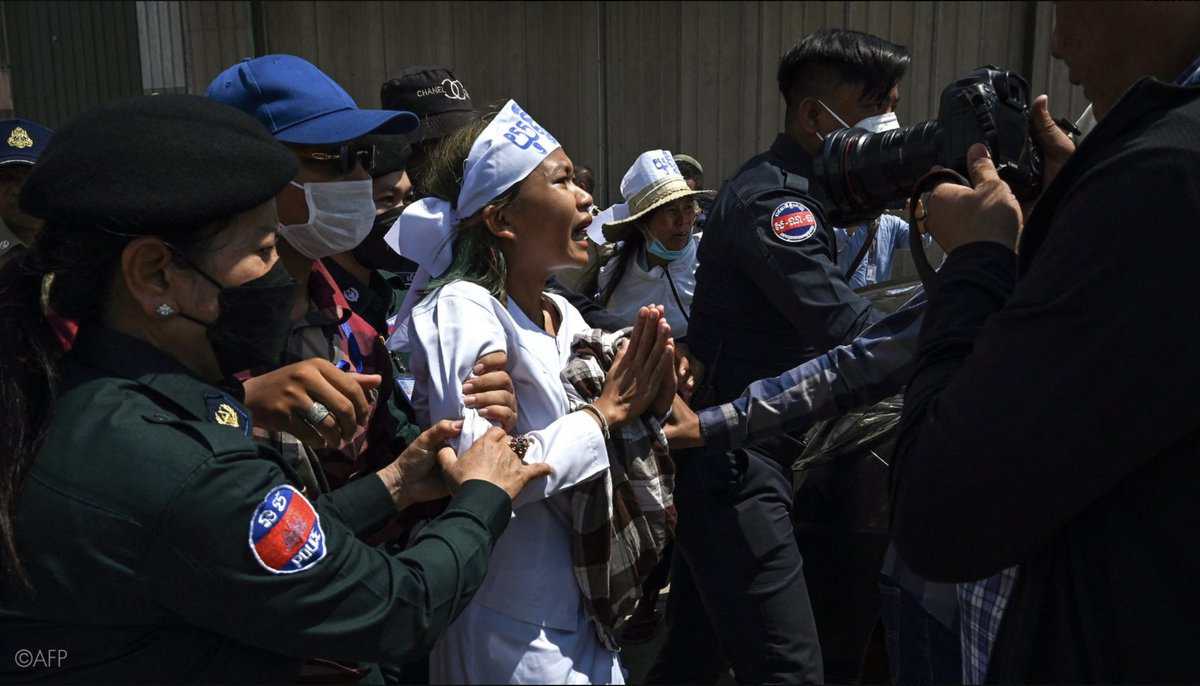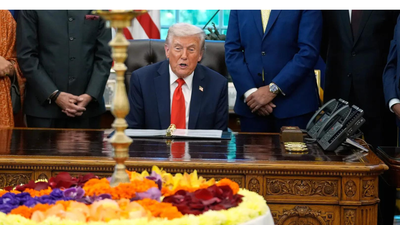Report on U.S. Senate Candidate’s Conduct and its Implications for Sustainable Development Goals
A report on the candidacy of Graham Platner for the U.S. Senate in Maine reveals a series of past online remarks and actions that conflict with the principles outlined in the United Nations Sustainable Development Goals (SDGs), particularly those concerning equality and institutional integrity. The candidate has acknowledged and apologized for the conduct.
Analysis of Conduct in Relation to Sustainable Development Goals
The candidate’s past actions and statements are being scrutinized for their alignment with global standards for equality and justice, specifically SDG 5, SDG 10, and SDG 16.
SDG 10: Reduced Inequalities
The candidate’s history of online comments demonstrates a pattern of discriminatory language that directly contravenes the objectives of SDG 10, which aims to reduce inequality by promoting the inclusion of all, irrespective of sexual orientation, race, or other status.
- From 2016 to 2021, the candidate authored multiple posts on Reddit containing homophobic slurs and derogatory jokes targeting LGBTQ+ individuals.
- Examples include using “gay” as a pejorative term, employing homophobic slurs against other users, and recounting stories that denigrated gay men.
- Previous reports also confirmed the existence of racially insensitive remarks, further undermining the principles of SDG 10.
SDG 5: Gender Equality
Prior to the most recent revelations, the candidate had issued apologies for misogynistic comments. This conduct is in direct opposition to SDG 5, which calls for an end to all forms of discrimination against women and girls and the elimination of all harmful practices.
SDG 16: Peace, Justice, and Strong Institutions
The integrity of a candidate for public office is central to achieving SDG 16, which focuses on building effective, accountable, and inclusive institutions. The controversies surrounding the candidate raise questions about his suitability to contribute to such an institution.
- The use of discriminatory language undermines public trust and the goal of ensuring non-discriminatory public service.
- The candidate admitted to having a tattoo that resembled a Nazi SS emblem, a symbol associated with hate and violence, which is antithetical to the promotion of peaceful and inclusive societies as mandated by SDG 16.
Candidate’s Response and Stated Commitment to SDG Principles
In response to the disclosures, the candidate has expressed remorse and outlined a commitment to principles of equality and inclusion.
Acknowledgement and Personal Evolution
The candidate confirmed he authored the posts, describing the language as “indefensible” and “abhorrent.” He stated that his perspective has evolved due to personal relationships with LGBTQ+ individuals, leading to a deeper understanding of the damaging nature of discriminatory language. This reflects a stated personal journey toward embracing the inclusivity central to the SDGs.
Policy Pledges and Institutional Commitments
The candidate has pledged to uphold equality, a core tenet of the SDGs, if elected.
- He stated he would “never vote for a piece of legislation that would treat LGBTQ Americans any differently than any other.”
- He affirmed his support for expanding LGBTQ+ protections, aligning with the targets of SDG 10 and SDG 16.
Reactions from Civil Society Organizations
Advocacy groups have responded by emphasizing the need for accountability and genuine commitment to equality from public leaders, reinforcing the principles of SDG 16.
- A spokesperson for GLAAD stated that voters expect candidates to demonstrate “evidence of growth and their ability to represent everyone.”
- The Human Rights Campaign described the comments as “disturbing and degrading” and noted the candidate “will have to answer to the voters of Maine.”
Conclusion: Implications for Inclusive Governance
The case highlights the critical importance of vetting candidates for public office against the principles of the Sustainable Development Goals. The candidate’s past conduct conflicts with the aims of SDG 5 (Gender Equality), SDG 10 (Reduced Inequalities), and SDG 16 (Peace, Justice, and Strong Institutions). While the candidate has expressed remorse and a commitment to change, the situation underscores the challenge of ensuring that public institutions are led by individuals who fully embody the values of equality, inclusivity, and justice required to achieve a sustainable future for all.
SDGs Addressed or Connected to the Issues
-
SDG 10: Reduced Inequalities
This goal is central to the article, which details a political candidate’s past use of homophobic, misogynistic, and racially insensitive language. This behavior directly contributes to the marginalization and inequality faced by LGBTQ+ people, women, and racial minorities. The article explores themes of discrimination, social inclusion, and the responsibility of public figures to promote equality for all constituents.
-
SDG 16: Peace, Justice and Strong Institutions
The article connects to this goal by examining the need for inclusive and accountable institutions. A political candidate’s past conduct and current promises are scrutinized to determine if they can contribute to a “responsive, inclusive, participatory and representative” government. The public discourse, driven by media and advocacy groups like GLAAD, is a form of holding potential leaders accountable, which is essential for strong institutions that uphold justice and equality.
-
SDG 5: Gender Equality
This goal is relevant as the article explicitly mentions that the candidate had previously “apologized for earlier Reddit posts that included misogynistic… remarks.” Misogyny is a form of discrimination that undermines gender equality, and holding a political candidate accountable for such language is a step towards ensuring women’s full and effective participation in public life.
Specific Targets Identified
Under SDG 10: Reduced Inequalities
-
Target 10.2: By 2030, empower and promote the social, economic and political inclusion of all, irrespective of age, sex, disability, race, ethnicity, origin, religion or economic or other status.
The article highlights the opposite of this target through the candidate’s past comments, which mocked and demeaned LGBTQ+ people. The response from GLAAD, stating that leaders should “work hard to fairly and respectfully serve all constituents,” directly invokes the principle of inclusion central to this target.
-
Target 10.3: Ensure equal opportunity and reduce inequalities of outcome, including by eliminating discriminatory laws, policies and practices and promoting appropriate legislation, policies and action in this regard.
This target is addressed by the candidate’s pledge to “never vote for a piece of legislation that would treat LGBTQ Americans any differently” and his support for “any measure expanding LGBTQ+ protections.” Furthermore, his testimony “in defense of a policy that was protecting LGBTQ students” is a direct example of action taken to promote non-discriminatory policies.
Under SDG 16: Peace, Justice and Strong Institutions
-
Target 16.7: Ensure responsive, inclusive, participatory and representative decision-making at all levels.
The entire controversy discussed in the article relates to whether the candidate can be truly representative of all citizens, including the LGBTQ+ community he previously denigrated. The scrutiny from the media and voters is part of a process to ensure that those in power are inclusive and responsive to the entire population.
-
Target 16.b: Promote and enforce non-discriminatory laws and policies for sustainable development.
This target is clearly identified through the candidate’s stated commitment to use his potential role in the U.S. Senate to support and expand legal protections for LGBTQ+ people. The mention of the “local school board meeting in defense of a policy that was protecting LGBTQ students” serves as a concrete example of promoting such non-discriminatory policies at a local level.
Under SDG 5: Gender Equality
-
Target 5.1: End all forms of discrimination against all women and girls everywhere.
The article’s reference to the candidate’s past “misogynistic… remarks” directly points to a form of discrimination against women that this target aims to eliminate. The public apology and scrutiny surrounding these remarks are part of the broader effort to end such discrimination in public and political life.
Indicators Mentioned or Implied
- Existence of non-discriminatory policies protecting specific groups: The article provides a direct example of this indicator by mentioning the candidate’s testimony “in defense of a policy that was protecting LGBTQ students” at a local school board. This policy is a tangible measure of progress.
- Public accountability for discriminatory speech by political figures: This indicator is implied throughout the article. The investigation by The Advocate, the public apologies from the candidate, and the critical statements from organizations like GLAAD and the Human Rights Campaign all serve as mechanisms of accountability that measure a society’s intolerance for discriminatory language from its leaders.
- Commitments by political candidates to enact protective legislation: The candidate’s explicit promise to “support any measure expanding LGBTQ+ protections” and to “push back against the Supreme Court” to defend equality serves as a forward-looking, qualitative indicator. It measures the political will to create a legal framework that supports equality.
Table of SDGs, Targets, and Indicators
| SDGs | Targets | Indicators |
|---|---|---|
| SDG 10: Reduced Inequalities | Target 10.2: Empower and promote the social, economic and political inclusion of all, irrespective of… other status. |
|
| SDG 10: Reduced Inequalities | Target 10.3: Ensure equal opportunity and reduce inequalities of outcome, including by eliminating discriminatory laws, policies and practices… |
|
| SDG 5: Gender Equality | Target 5.1: End all forms of discrimination against all women and girls everywhere. |
|
| SDG 16: Peace, Justice and Strong Institutions | Target 16.7: Ensure responsive, inclusive, participatory and representative decision-making at all levels. |
|
| SDG 16: Peace, Justice and Strong Institutions | Target 16.b: Promote and enforce non-discriminatory laws and policies for sustainable development. |
|
Source: advocate.com







